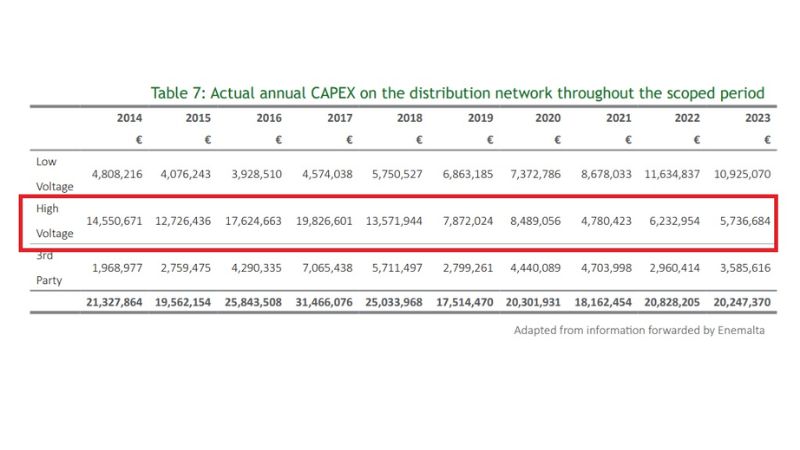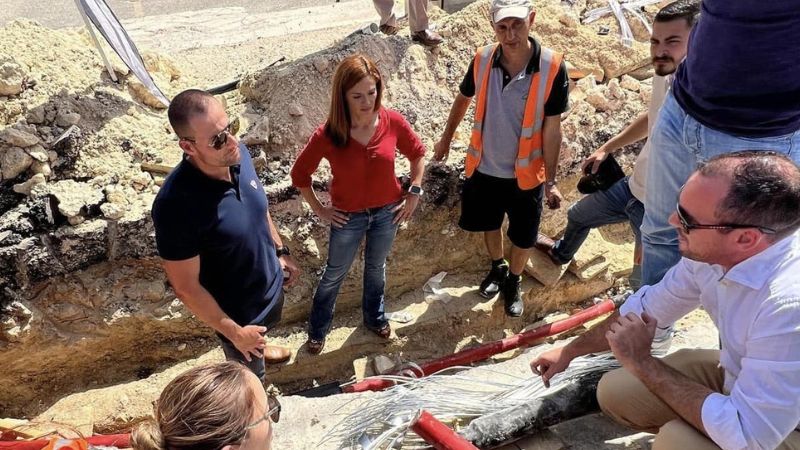State energy company Enemalta did the opposite of what it was expected to do from 2018 onwards, investing less in the upgrading of its distribution network (the grid), resulting in the total collapse of the system last summer, a new report by the National Audit Office (NAO) has concluded.
The NAO, following a request by ADPD, examined what led to the collapse of the system last year and found that while, until 2018, Enemalta was keeping up with the rise in temperatures and demand, it inexplicably lowered its investment in the grid since Minister Miriam Dalli took over the reins of the company.
This prompted the grid to collapse during the long, hot days of summer, leaving thousands of households and businesses without energy for days in the peak of the tourism season.
The report found that while Enemalta invested an average of €15 million a year between 2014 and 2018 to upgrade its high-voltage network, given rising consumption and peak demands, this investment dwindled from 2019 onwards, reaching a low of just €5.7 million in 2023.
This means that while consumption was on the rise, considering population increase and tourism peaks, Enemalta’s investment reached its lowest.
Following some three weeks of blackouts in July of last year, Prime Minister Robert Abela and Minister Miriam Dalli blamed the high temperatures as the main cause of the nationwide blackouts, insisting that the temperatures were causing the cables to fault.
Experts had rubbished the government’s excuses, insisting the power cuts were the result of Enemalta’s bad planning and management in upgrading its infrastructure, which the NAO has now confirmed.

The higher the demand, the lower Enemalta’s investment in the grid. Source: NAO
“The annual capital investment in High Voltage distribution network has been on the decrease. This contrasts with the investment in low voltage networks, which absorbed increasing expenditure throughout the years,” the NAO said.
“Together with the factors of increases in average and peak temperatures, as well as the registered increases in peak and actual demand, brought about by an increasing GDP per capita, NAO questions the decrease in capital investment in the HV distribution system, particularly as this is the area in which the faults of summer 2023 occurred,” the NAO added.
As a result of last summer’s debacle, Prime Minister Robert Abela fired Miriam Dalli’s CEO at Enemalta, Jonathan Cardona, who was appointed despite having no experience in the sector.
Dalli resisted removing Cardona but was overruled by the prime minister. Instead, he installed Ryan Fava as chairman, an engineer by profession and a close friend of Abela, particularly his father, former President George Abela.
Since last summer, Enemalta started implementing a significant upgrade of its grid, trying to recoup lost years. Yet complaints about long hours of service interruptions abound as temperatures continue to rise.













More from the trenches!
Looks like things aren’t gonna change- three power cuts in San Gwann last night. Look forward to more incompetence.